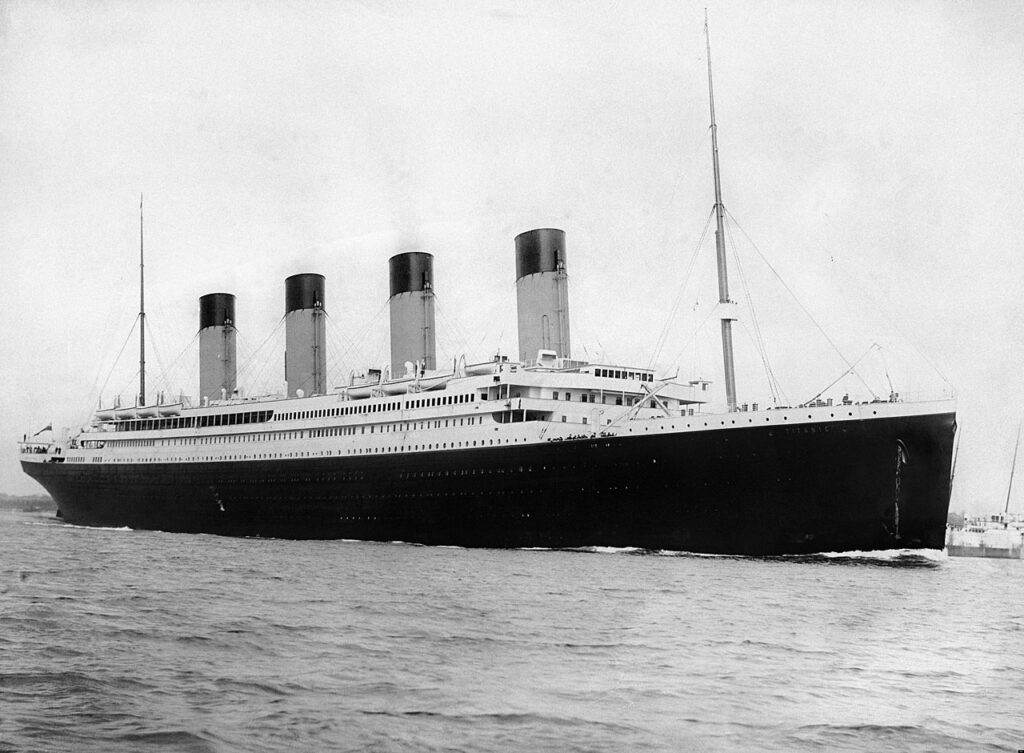Lost Voices: After the Titanic by Derek Mahon
They said I got away in a boat
And humbled me at the inquiry. I tell you
I sank as far that night as any
Hero. As I sat shivering on the dark water
I turned to ice to hear my costly
Life go thundering down in a pandemonium of
Prams, pianos, sideboards, winches,
Boilers bursting and shredded ragtime. Now I hide
In a lonely house behind the sea
Where the tide leaves broken toys and hatboxes
Silently at my door. The showers of
April, flowers of May mean nothing to me, nor the
Late light of June, when my gardener
Describes to strangers how the old man stays in bed
On seaward mornings after nights of
Wind, takes his cocaine and will see no one. Then it is
I drown again with all those dim
Lost faces I never understood, my poor soul
Screams out in the starlight, heart
Breaks loose and rolls down like a stone.
Include me in your lamentations.
After the Titanic by Derek Mahon, is a literary masterpiece that transcends the boundaries of time and space. Published in 1978 as part of his collection "The Snow Party," this poem delves into the profound aftermath of the Titanic disaster, a maritime tragedy that shook the world in 1912.

Contents
- Navigating the Depths of After the Titanic by Derek Mahon
- Historical Allusions and Personal Anguish in After the Titanic by Derek Mahon Anguish
- The Titanic as Metaphor in After the Titanic by Derek Mahon
- The Poem's Enduring Resonance
- Survivor’s Guilt and Psychological Collapse
- Survivor’s Guilt and Psychological Collapse
- Philosophy and the Human Condition in After the Titanic by Derek Mahon
After the Titanic by Derek Mahon is more than a poetic retelling of a historic event—it's an introspective exploration of guilt, survival, and the fractured human spirit. Written in 1978 and featured in Mahon’s collection The Snow Party, the poem channels the psychological aftermath of the Titanic tragedy through the voice of J. Bruce Ismay, the controversial survivor and chairman of the White Star Line.
This vivid, emotionally complex monologue draws readers into a world of emotional exile, shame, and unhealed wounds. From the first line, Mahon immerses us in the bleak solitude of a man who survived when many others perished.
Historical Allusions and Personal Anguish in After the Titanic by Derek Mahon Anguish
One of the most compelling aspects of After the Titanic by Derek Mahon is its careful weaving of historical references and personal anguish. By adopting the voice of Ismay, Mahon explores the silent agony of surviving a disaster that cost over 1,500 lives. The poem's references to “prams, pianos, sideboards” tumbling into the sea conjure a chaotic, cinematic memory of the sinking.
These domestic items, now sinking relics, symbolize lost lives and innocence. The line “I sank as far that night as any hero” speaks volumes—Ismay did not go down with the ship, but he metaphorically drowned in guilt, shame, and public scorn.
The Titanic as Metaphor in After the Titanic by Derek Mahon
Beyond the historical narrative, After the Titanic by Derek Mahon treats the Titanic as a metaphor for the fragility of life, ambition, and illusion. The opulent ship, hailed as “unsinkable,” now lies at the ocean floor—an eternal monument to human vulnerability.
Mahon’s imagery—the “pandemonium of boilers bursting,” and “shredded ragtime”—captures both the violence of the event and the emotional fragmentation of its aftermath. Ismay’s retreat to “a lonely house behind the sea” mirrors his internal isolation, an exile not imposed by courts, but by conscience.
The Poem's Enduring Resonance
"After the Titanic" has resonated with readers for decades due to its profound exploration of universal themes. The poem's examination of guilt, grief, and the enduring impact of trauma transcends the specific historical context of the Titanic disaster. It speaks to the human experience of loss, reminding us of our shared vulnerability and the importance of empathy and compassion.
Moreover, the poem's lyrical beauty and evocative language elevate it to the realm of art. Mahon's skillful use of metaphor, imagery, and rhythm creates a haunting and unforgettable reading experience.
Survivor’s Guilt and Psychological Collapse
A central theme in After the Titanic by Derek Mahon is survivor’s guilt. Mahon doesn't merely recount Ismay’s actions—he dissects his emotional collapse. The speaker’s tormented solitude, his cocaine use, and avoidance of visitors speak to the weight of living with unshakable remorse.
The metaphor “I drown again with all those dim / Lost faces” is among the most powerful in the poem, illustrating how survival can become a recurring trauma. Mahon explores how guilt can erode identity, turning life into a slow, psychological shipwreck.
Survivor’s Guilt and Psychological Collapse
More than four decades after it was written, After the Titanic by Derek Mahon remains profoundly relevant. In an age of mass displacement, climate catastrophes, and public tragedies, the emotional core of Mahon’s poem still resonates. Survivors today—whether of war, natural disaster, or trauma—often face the same silent agony depicted in Ismay’s voice.
Mahon universalizes Ismay’s personal torment, using it to reflect on broader human themes: the burden of existence, the loneliness of survival, and the struggle to reconcile public judgment with private truth.
Philosophy and the Human Condition in After the Titanic by Derek Mahon
The poem taps into philosophical questions: Is surviving inherently noble? Or does it carry a moral weight that becomes unbearable in the absence of heroic action? Mahon portrays a world where survival isn't always victory. Instead, it's a place of reflection, shame, and identity crisis.
Lines like “my poor soul screams out in the starlight” encapsulate a deeply human moment of existential dread. After the Titanic by Derek Mahon ultimately asks us to consider: what happens after we live through the worst? What is left when the world moves on, but we remain trapped in memory?
FAQs about After the Titanic by Derek Mahon
1. What is After the Titanic by Derek Mahon about?
It’s a dramatic monologue in the voice of J. Bruce Ismay, exploring guilt, shame, and survivor’s remorse after escaping the Titanic disaster.
2. Who is the speaker in the poem?
The speaker is J. Bruce Ismay, the chairman of the White Star Line, who was publicly shamed for surviving the Titanic while so many others died.
3. What themes are present in After the Titanic by Derek Mahon?
Key themes include survivor's guilt, historical trauma, human fragility, isolation, and the psychological cost of survival.
4. Why is the Titanic used as a metaphor?
Mahon uses the Titanic as a symbol of human pride and its collapse as a reminder of life's unpredictability and vulnerability.
5. What is the tone of the poem?
The tone is reflective, sorrowful, and laced with existential regret. It’s both confessional and poetic.
6. Why is this poem still relevant today?
Its exploration of guilt, trauma, and the emotional cost of survival resonates with modern audiences facing war, disasters, and social crises.
Conclusion: The Lasting Power of After the Titanic by Derek Mahon
After the Titanic by Derek Mahon is a poetic triumph that bridges personal grief and public history. Through Ismay’s troubled voice, Mahon reveals the deep psychological scars left by survival—how they can haunt us more than death itself.
This timeless work isn’t just about one shipwreck. It’s about all the silent wrecks inside us—the emotional collapses we carry, the questions we ask in the quiet. By confronting guilt, survival, and human fragility, After the Titanic by Derek Mahon leaves us with a simple yet profound message: sometimes, surviving is the heaviest burden of all.
